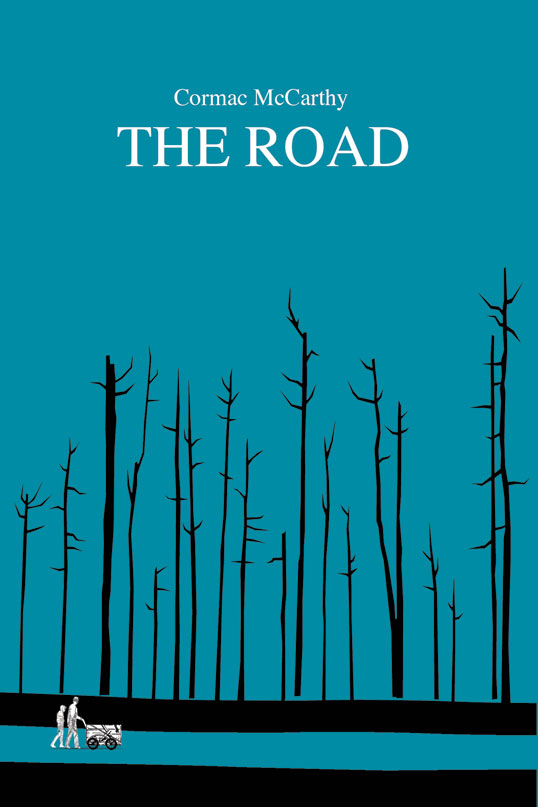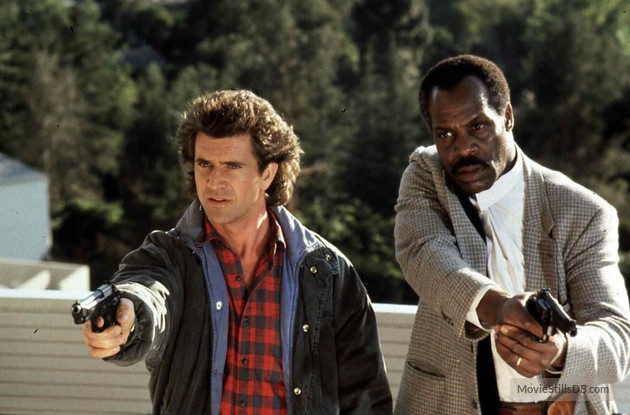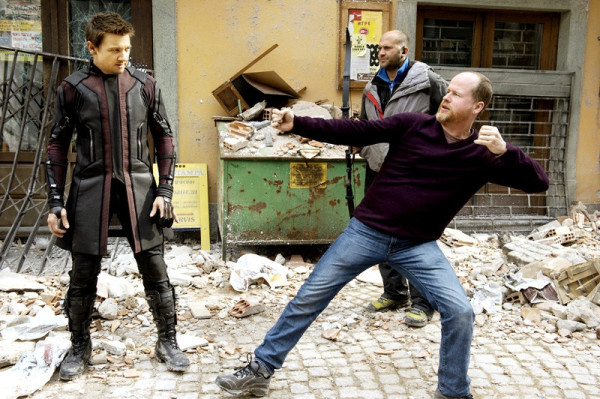Scriptshadow 250 Contest Deadline – 82 days left!
Hey guys. No Amateur Offerings this weekend. However, use the comments to suggest/vote for a second chance review – a script from one of the previous Amateur Offerings that you felt deserved a shot at a review. You can nominate your own scripts, of course, but it will ultimately be up to the majority. In the meantime, I will give Scriptshadow brownie points to whoever comes up with the best logline that includes a kitten.
Scriptshadow 250 Contest Deadline – 84 days left!
One of the least talked about components of screenwriting is READABILITY – or “How easy is your screenplay to read?” That’s because when compared to character, dialogue, structure, and theme, readability doesn’t seem that important. And that’s true to a certain extent. But think of it this way. While eggs and flour and sugar are all essential to make a great cake, you can’t serve the cake unless you have a plate to carry it on. “Readability” is a screenplay’s plate.
This is one that’s always vexed me. I’ll be sludging through a screenplay where every sentence feels like I’m on the 405 freeway during rush hour. Start-stop-start-stop-start-stop. Then, when I read a good screenplay, the sentences run together like melted butter. Everything seems so natural. So easy. I never think about the writing once.
But it’s not always clear why some scripts read uglier than others. I’ll go back through the bad-reads to figure out what went wrong and find that “technically” the writing was “correct.” What clouds the analysis is story quality. When you’re in the middle of a good story, the sentences always read quicker. When you’re reading a bad story, each sentence seems to go on forever.
Is readability just relative? Are sentences only as bad or good as the story they’re a part of?
I don’t think so. There’s clearly a way to combine sentences together in a pleasing easy-to-read manner. Unfortunately, there don’t seem to be any books or online tutorials about how to achieve this. You’re taught all the rules of writing in school and from then on it’s up to you to “write good.”
That’s why I’m writing today’s article. If nobody else is going to do it, I might as well give it a shot. To do so, I’ll be comparing four sentences/paragraphs from professional and amateur screenplays. My hope is, by utilizing this direct comparison technique, we’ll find some answers. Let’s give it a shot.
Example Number 1
From – “Joy” by Annie Mumolo
“They both glance over to a table where Joy’s father RUDY sits like a KING with his arm around a ROBUST woman in an ill- fitting MARILYN MONROE DRESS.”
From – Amateur Screenplay
“Danny patters to the front doors. Angelina awaits him there. The two join hands, partaking in a private moment.”
At first glance, the amateur submission isn’t that bad. But I don’t think it’s as good as the professional one. I found Joy to be EXTREMELY readable. While I wouldn’t nominate it for “most technically proficient screenplay of the year,” I don’t remember a single moment where I had to reread a sentence to understand what was going on.
That’s one of my biggest takeaways from this experiment. Professionals know they’re not trying to win over English professors with their scripts. They’re trying to tell a story. And the easier they can get that story across to the reader – whether it’s technically correct or not – the better.
A lot of times, amateurs overthink their prose and make it more complicated than it needs to be. If you look at the sentence from “Joy,” it’s not trying to be more than it is. There isn’t a single word in the sentence that you don’t understand. But reading the amateur sentence, we get the word “patters” immediately. That’s not a common word in this context and causes a pause, if however slight. Whenever a reader stops, if even for a split-second, that means you’ve failed as a writer. Reading is supposed to be seamless. When it isn’t, the reader is taken out of the story.
There are two other issues with the amateur example. The word “partaking” is another odd unpleasant word in this context, which causes another pause. Also, notice how the paragraph is broken up into very abrupt sentences, making for a robotic presentation. I wouldn’t say that this is unpleasant. We’ll see in a moment that it’s possible to do this well. But in conjunction with the other mistakes, it hurts the read.
That’s another thing I’ve learned through this experiment. Bad writing is a lot like bad piloting. If you make one mistake as a pilot, it usually goes unnoticed. But when the mistakes pile up, that’s when the plane crashes. Let’s move on to the next example.
Example Number 2
From – “February” by Osgood Perkins
“Kat comes out from behind the closet door, wearing her oversized hooded Bramford sweatshirt and a pair of printed pajama pants.”
From – Amateur Screenplay
“Cinnamon unbuttons shirt cuffs, rolls up sleeves, pulls on thin black leather gloves from a rear hip pocket. He draws the backside .22 and holds it aloft by the silencer.”
Here we have a lot of detail. But in one case, the sentence is easy to read through, and in the other, it made my head hurt. Notice how in “February,” we have three words in a row that end with the letter “d” and then nearly four words in a row that start with “p.” This alliteration helps the sentence move along quicker in the mind.
With the amateur entry, it feels like information overload. I remember reading this script and there were a lot of sentences, like this one, where I had to read them 2-3 times to take in everything that was going on. While technically fine, it seems like the paragraph could’ve been simplified. Also note that while in “February,” we have a full sentence, in the amateur submission, words are missing in favor of the staccato style. I’ve added where those words would be:
“Cinnamon unbuttons [her] shirt cuffs, rolls up [her] sleeves, [then] pulls on [some] thin black leather gloves from…”
I’m not going to say to never use staccato style. This is something a lot of writers have used successfully. But when you use in it conjunction with too much information or overwritten sentences, it can easily start to feel like work to read through. Case in point, here’s a paragraph from who many feel to be the king of this kind of writing, Shane Black, in his first screenplay, “Lethal Weapon.”
“Sergeant Martin Riggs is driving. He looks like he hasn’t slept. He certainly hasn’t shaved. The DISPATCH RADIO SQUAWKS. He turns down the MUSIC from the car radio and hears:”
We have short quick sentences here, like the amateur example. But they’re all grammatically correct, making them easier to read. Let’s move on to the next example, staying with our friend, Shane.
Example Number 3
From – “Lethal Weapon” by Shane Black
“A section of the parking lot is cordoned off by yellow streamers which read: POLICE LINE – DO NOT CROSS, and as we watch, a black and white patrol car pulls up, admitting two beat COPS and a young hooker. Her name is DIXIE, and she is not happy.”
From – Amateur Screenplay
“Hadley settles in. The Maitre d’ snaps at a server, pointing to the table and holding up one finger addressing Hadley who has just joined the group.”
At first glance, Shane Black’s sentence seems odd. While he probably should’ve ended his first sentence after “DO NOT CROSS,” he chooses to make it one continuous sentence. Some may say this is “wrong,” yet it all feels so relaxed and natural, I’m tempted to say it’s fine. I don’t have to put in any effort to figure out what he means or reread anything, which tells me the sentence is a success.
Now let’s look at the amateur example. Everything seems to be going well until we reach the Maitre d’ holding up one finger. When we get to “and” in this example, “holding up one finger” seems to be more of an afterthought, as opposed to a natural extension of the sentence. This is fine in everyday conversation when we remember things at the last second all the time, but when you’re describing something in a screenplay, it has to feel planned, or else it reads like you’re making your story up as you go along.
This assumption is solidified when the last part of the sentence arrives: “…addressing Hadley who has just joined the group.” This tacked on piece of information is lazy. Notice how everything in Shane’s example is in the ACTIVE VOICE. What’s happening is happening RIGHT NOW. In contrast, “…who has just joined the group” is PASSIVE. It already happened, making it feel tacked on. The lesson here is clear. Keep everything in the active voice if possible. And don’t tack things onto the ends of sentences. It shouldn’t be, “Carson writes an article after he opens a coke.” It’s, “Carson pops open a coke and writes his article.”
Example Number 4
“500 Days of Summer” by Scott Neustadter & Michael H. Weber
“And that question hangs in the air. Tom, panicked, decides to cut the silence. All the pent up uncertainty and confusion, coupled with the challenge to his manhood in front of the woman he loves, all manifests in one single, solid, almost automatic RIGHT CROSS TO THE GOOD LOOKING DOUCHEBAG’S FACE.”
From – Amateur Screenplay
“Joseph drives too fast through woody shrubs on a steep, gravelly hillside. He slams on the brakes before heading off a bluff. Gets out and looks across the vast desert sands.”
Our 500 Days friends go big here with a really long sentence. They even make a mistake. “All” is used twice when it should’ve been used once. And yet it works. The long sentence is fine because it’s a pivotal moment in the film. It’s okay to write bigger when the moment is bigger. The sentence also takes place completely in the active voice, making it easy to read. And everything flows. Every word/fragment/idea is a logical progression from the word/fragment/idea before it.
Now let’s look at the second example. Everything here is fine until we get to “before.” “Before heading” takes us out of the active voice into a semi-passive voice. But it’s the next sentence that derails the paragraph. Driving the car and getting out to look at the desert are two different actions and should’ve been split up into different paragraphs. Together, they feel jarring, causing the reader to hesitate as he realizes we’ve moved out of the car into a different area. There’s also an inconsistency to focusing on such specific moments within the paragraph (“woody shrubs, a steep gravelly hillside, slams on the breaks”) to then end on one so general (looking across a desert).
CONCLUSIONS
This exercise has taught me a few things about the elusive quality of readability. First off, “technically correct” doesn’t always mean “readable.” Just as “technically incorrect” doesn’t always mean “unreadable.” You can go against what they taught you in school and still write a very easy-to-read sentence. Look at our first example from Annie Mumolo. Some people might call that a run-on-sentence. But it’s fast and smooth and easy-to-read so it works.
Another big breakthrough for me – the closest I got to an “ah-ha” moment – was Osgood Perkins’ use of alliteration, which added a pleasing repetition to the words on the page. It’s this “pleasing” quality that I’m after. But I don’t think it’s possible to ALWAYS use alliteration. It’d just be too hard (and might even get annoying after awhile). I almost wonder if there’s a less structured/defined way to achieve the same effect using a middle-ground technique (not quite normal sentence and not all-the-way alliteration). Has anyone heard of such a technique?
One of the most frustrating things about all this is the reality that there’s nobody out there who actually teaches you how to WRITE. Sure, there are teachers who teach you nouns and verbs – all the technical stuff. But once you have that down, where is the instructor who teaches you how to place words together in a pleasing way? I haven’t found him yet. And I want to. How bout you guys? Do you know of any books or tips that help one achieve this? I’ve been looking for material on this forever.
In the meantime, here are some tips to avoid the mistakes today’s amateurs made.
1) Keep your writing simple.
2) Keep your writing in the active voice if possible.
3) Never write to impress. This is what most beginners do and they end up writing a bunch of unnecessary prose in the process.
4) Don’t use vocabulary to show off. If you’re using a thesaurus to include a word you’ve never personally used before, you probably shouldn’t use that word.
5) Staccato-style writing (“Jump down.” instead of “They jump down.”) can be draining to read over a long period of time. There are some writers who do this well. But usually, it requires the brain to think differently in order to process the words, which is taxing. Proceed with caution.
6) In screenwriting, “fewer words” is usually better than “more words.” While this would seem to contradict what I just wrote, what I mean is, even with traditional sentences, there’s always a way to say something with fewer words. “John grabs his grimy baseball hat as well as his gun while wiping the ever-thickening sweat off his brow,” can easily be turned into, “John grabs his cap and gun and flicks the sweat off his brow.”
7) Complex sentences are dangerous. Indeed, it’s after a conjunction where a few of our amateurs fell apart. A single conjunction (and, but, or) is standard. But when you start using more than one in your sentence, it may be time to start a new sentence.
8) Write to your level – If you’re only capable of doing a double-axel, you’re going to be exposed every time you try a triple-axel. Sure, we’d all like to be Cormac McCarthy, but one of the biggest mistakes I see writers make is writing above their level. And it’s VERRRRRY painful to read. Screenwriting is one of the more forgiving forms of writing when it comes to prose. You don’t have to knock our socks off. Take advantage of that.
And with that, I’m going to leave you with two final UNLABELED examples, one pro and one amateur. Tell me which you think is pro, which is amateur, and why in the comments. I’ll reveal which is which (in the comments) after sundown.
MYSTERY EXAMPLE #1
“Casper, wearing only tighty-whiteys, sits on the floor of his bedroom amid t-ball trophies, race car bed sheets and a pin-up of Farrah Fawcett; the conflicting decorations of a boy who went through a quick growth spurt.
He thumbs through last year’s yearbook looking for the mystery girl. He gives up, lays down and lights a joint.”
MYSTERY EXAMPLE #2
“Surrounded, Black begins a coughing fit. His hands come up to cover the cough – the paperclip he stole from Moreau slips into his hand.
Stumbles into the Elevator panel – hitting the EMERGENCY button. The Elevator STOPS – sending everyone flailing.
Black uses the paperclip to release the cuffs. Nickels sees what’s going down – but isn’t quick enough to stop –
– Black unloads a barrage of strikes, taking down each Agent. Quickly undoes his shackles.”
Scriptshadow 250 Contest Deadline – 85 days left!
Genre: Biopic
Premise: The story of Joy Mangano, the creator of the Miracle Mop, one of the most successful products in history.
About: The winning combo of David O’Russell and Jennifer Lawrence is back. And talk about a strange writing twist as Annie Mumolo, best known for co-writing the hit comedy, Bridesmaids, with Kristin Wiig, has taken on scripting duties. Joy will be hitting theaters later in the year, smack dab in the middle of Oscar season, and will secure Lawrence her second Oscar (yes, I’m calling it right now – this is a foregone conclusion).
Writer: Annie Mumolo
Details: 136 pages (First Studio Draft – May 17, 2013)
Chant it with me: Bi-o-pics! Bi-o-pics! Bi-o-pics!
Are biopics becoming the new indie superhero movie? Everywhere you look, here comes another one. I’m sure it’s only a matter of time before these indie studios find a way to create “universes” out of biopics. Like maybe Nikola Tesla can appear in a movie about River Phoenix. Or Erin Brokovich can cameo in The Imitation Game 2. Can somebody say “bank?”
In all seriousness, I’m shocked that no one’s made a story about Joy Mangano before. If everything I just read is true, this is one of the most amazing true stories ever. I’d go so far as to say if you want to enjoy this script (or the film), don’t read this review or research Joy. The joy (no pun intended) of this script comes from experiencing all the little twists and turns in Joy’s life as she pursues her dream.
However, seeing as this is a textbook example of how to write a great biopic, I would encourage anyone writing one themselves to seek the script out and study it. I’ll talk about why this is such a great script in a second. But first, here’s a quick breakdown of the story.
When Joy marries the perfect man in Tony Mangano, the Long Island native is floating on Cloud 9. After having three kids, you couldn’t draw up a better dream life than if you manufactured white picket fences for a living. But all that comes crashing down when Joy finds out Tony’s been cheating on her.
Most women would’ve swallowed their pride and kept their husbands after this news. But Joy is not “most women.” She divorces Tony and attempts to raise her three kids on her own. That proves tough, but luckily, Joy’s been working on an idea she’s come up with. A mop that magically picks up everything when you use it, the water AND the gunk.
Soon she’s selling these mops outside K-Marts before finally getting a shot to do a run on HSN. After some doofus screws up the pitch on the mop’s first run, Joy gets a shot to personally pitch the product. The result is shocking, with her selling out every single mop she’s produced.
With the help of her father, who secures a manufacturing deal in California, Joy soon has a fledging business. But when the manufacturing company suddenly raises her prices, she suspects something foul is afoot. Being Joy Magano, she personally flies there to find out what’s going on. What she finds out is shocking not just because she realizes everything about her business is a sham, but that it was her own family that did it to her.
This script is a testament to the power of the ACTIVE MAIN CHARACTER. We talk about that all the time. But you really see it in action here. An active main character GOES AFTER THINGS. And we like people who go after things.
For example, when Joy’s product gets picked up by HSN, they have some actor who doesn’t know the product demonstrate it. And he does it all wrong. Naturally, the mop doesn’t sell. So what does Joy do? She personally goes to the HSN headquarters and demands to speak to the president. That’s what I mean by ACTIVE.
Again, later, when Joy can’t get anyone from the manufacturing company on the phone as she’s trying to figure out why they’ve raised her prices, she FLIES TO CALIFORNIA to confront them. Again, that’s an ACTIVE character. Audiences LOVE watching characters do this. And it makes stories so much more exciting. Wouldn’t you rather watch someone who’s passionately purusing something than someone who’s sitting around letting life pass them by?
I suspect a lot will be made of how powerful a role this is for a woman, and they’re right. There should be more roles like this for women. But again, this kind of role needs to be written for EVERYBODY. There aren’t enough roles written with characters who are this active. That’s the main reason “Joy” works.
Speaking of the active stuff, there’s another great screenwriting tip buried in the “go to California” scene. I’m going to guess that, in real life, Joy didn’t go to California. I think she probably made a lot of phone calls and figured out they were screwing her over. However, as a storytelling device, phone calls are boring.
So instead, Mumolo had Joy go to California, and we get a much better scene as a result. While Joy is questioning the people at the company, her friend is outside and sees men sneaking Joy’s mop molds into a truck. Her and Joy then follow the truck, and eventually get an officer to stop it, and confront the man driving. This is way way way more entertaining than any scene you could’ve gotten on a phone call.
There’s other things about this script that make it stand out as well. Take Tony, the cheating husband. What are most writers going to do with this character? They’re going to vilify him, right? It’s the obvious thing to do so it must be the right choice. Well, instead, after their initial break-up, Tony actually becomes a supporter of Joy’s. He wants her to succeed.
This minor unexpected touch made the movie feel more like reality. Because if every character follows the typical movie blueprint, people become aware that they’re watching a movie. When characters act unexpectedly – outside of stereotypes or clichés – it tricks the viewer into thinking they’re watching real life.
And actually, I loved who the villain ended up being (major spoilers ahead). The villain was the father. He ended up deceiving Joy and stealing her patent in order to make a buck. And when you think about what you want out of a villain – which is to infuse frustration and anger into the audience – there’s really no better person to do that than family.
I mean, who the hell cares if Ultron screwed you over. You don’t even know the guy. But your own father?? The person who raised you?? The person who you trusted more than anything?? When it’s THAT person who deceived you, it’s going to hit on a 100x deeper level than any villain Marvel can come up with.
With that being said, the father is the only element here that needs further development. He only becomes a major player late in the movie. Before that, we saw bits and pieces of him as well as hearing about him peripherally (he divorced Joy’s mom so she always complained about him). We needed to see a couple of more scenes with him and Joy early so his deception at the end hits harder.
But other than that, this script is the bee’s kneecaps. And I have to give props to both Russell and Mumolo. Russell gets a lot of heat for his activities on set. But there isn’t a director out there right now who understands storytelling better than him. And I’m not going to lie. I totally pegged Annie Mumolo as a lightweight after Bridesmaids, someone who benefitted greatly from a friendship with Kristin Wiig. But this script proves she’s the real deal, and might even win her an Oscar.
[ ] what the hell did I just read?
[ ] wasn’t for me
[ ] worth the read
[x] impressive (Top 25!)
[ ] genius
What I learned: Montages are often boring and skipped over by readers. People aren’t interested in reading through a bunch of random shots. So I love what Mumolo does here. She NAMES her montages. This instantly gives the montage a theme and therefore strips away their randomness. So for example, on page 31 we get the “Joy Without Tony” montage, to signify her new daily routine after her divorce. Then later the “7000 Mops” montage, where she must somehow produce 7000 mops. It’s a small thing, but for someone who hates montages, I found it clever.
Genre: TV Pilot – Drama
Premise: Right now there is an oil boom going on in America, one that will change everything about the world, as well as everything about the town it inhabits.
About: We’ve got writers from two different worlds colliding on this one. Josh Pate has been writing for television for 20 years. His credits include shows like Falling Skies and Legends. Rodes Fishburne, on the other hand, is a novelist (Going to See The Elephant – about a man who moves to San Francisco) and journalist, who’s written for such publications as The New Yorker and The New York Times. Boom seems like one of ABC’s big guns this coming season, so we’ll likely be seeing it in the fall.
Writers: Josh Pate and Rodes Fishburne
Details: 60 pages (January 16th, 2015 – Second Network Revision)
When I first started reading Boom, I wasn’t sure if I was reading reality or science-fiction. The U.S. has found some previously unknown oil well in North Dakota that’s bigger than any other oil well in the world? When did this happen? Have I been so wrapped up in pointless entertainment news issues like whether Robert Downey Jr. likes independent movies or not that I’ve managed to overlook the most significant find in the history of the world?
Here are some facts I learned from Boom –
1) There will be a city the size of Dallas in North Dakota by the year 2030.
2) A new millionaire is made in North Dakota every day.
3) North Dakota’s unemployment rate is currently 0%.
Considering I always thought North Dakota was a lake that existed in either Canada or Poland, I find this all very hard to believe. But assuming it’s true, today’s writers might have stumbled on the subject matter of the decade to base a TV show on.
Billy LeFever’s a dreamer. Always has been. So persuasive are his dreams, he’s even roped his wife, Kelly, into them, convincing her to head to the growing oil-rich town of Williston, North Dakota to set up a chain of Laundromats there.
But as you all know, being screenwriters, dreamers can be a little blind. We can get a little ahead of ourselves and maybe not have a Plan B. This is exactly what dooms Billy, whose truck full of washers crashes just outside of Williston. His UNINSURED truck. All of a sudden, these two have to go back to square one.
Which is really what the Boom pilot is about. Billy gets a tip about a piece of property that’s over a previously unknown oil reserve and uses a series of shady investments to buy the place from the clueless owner. He’s doing this all on blind faith. I mean, he’s pretty sure the tip is good. But he’s not positive. Lucky for him, the bet pays off when the richest man in town, billionaire Hap Boyd, offers to buy the land from Billy for a cool million.
You’d think it’s happily ever after from there, but it turns out a lot more is going on in Williston. Hap’s hated first son starts a business siphoning oil from his pop’s reserves. And the Middle East even has spies in Boom Town, here to report back about their competition. Add a local Indian Tribe who’s about to find out they’re sitting on a billion dollar piece of land and you can imagine how crazy things are going to get. Sounds like lots of exciting times ahead for Williston, North Dakota.
Here’s the refreshing news about Boom. It’s not about superheroes. It’s not about cops, or lawyers, or doctors. It’s not about a morally ambiguous anti-hero doing something shady to make a living. Well, actually, it’s kind of about that. But still, there’s no doubt that one of Boom’s biggest strengths is that it’s DIFFERENT. And that’s hard to do right now, with every writer and their mother writing TV shows.
The script smartly centers on a pair of underdogs, Billy and Kelly (everybody loves underdogs!), nobodies who’ve put every cent they have on the line and then lose it all in a car crash the second they get here (ironically pushed off the road by an oil truck). Who’s not going to root for these two after that?
Stakes play a big part in why their plight works. Remember, the more you can put on the line for your hero(es), the better. These two haven’t just invested their own money, they’ve taken all their friends and families’ money as well. Then, when Billy needs to buy the land, he borrows more money, putting them even further in the hole. If his plan doesn’t work out, he’s really f*&ed. And that’s the way you want it. You need your character to be f*&ed if the plan fails.
Another cool thing about Boom is the cast. And this very well may be the show’s secret sauce. The way this boom is shaping up (I’m talking about in the real world), EVERYBODY is coming from EVERYWHERE to be a part of it. This allows Boom to have a really diverse cast of characters, from Caucasians to Mexicans to Native Americans to Middle Easterns to even Nigerians! Not only does this keep the show feeling fresh but networks love this. They want to have diverse casts. And if it’s organic to the story, like it is here, all the better.
If Boom has issues, it may be in its 3rd Act plotting (3rd Act in TV terminology, not feature terminology), where Billy goes from owing $100,000 to becoming a millionaire in the span of two days. This happens literally within 20 pages and while the plot points were plausible enough to buy on their own, it was hard to concede all of them falling in line together. I mean, who do you know that can raise 100k in 24 hours who doesn’t have the last name of Zuckerberg?
But if you get past that one flaw, it’s a fun ride. Like every TV show, it’s going to come down to how it’s directed. But I’m excited to see how it turns out. Even the cable channels are getting stale with their ideas. It’s time we put something different on the air.
[ ] what the hell did I just read?
[ ] wasn’t for me
[x] worth the read
[ ] impressive
[ ] genius
What I learned: It doesn’t matter how many times you use this one, it always works. Set up something really valuable that one of your main character’s owns, and then force them to have to sell it at some point. The more personal the item is to your character, and the more emotionally attached they are to it, the better. So here, Kelly owns an emerald necklace that literally came from her 3x great grandmother. It’s priceless. When Billy needs that last 25k to buy the land plot, Kelly offers up the emerald. We GASP at the thought, since the importance of the necklace was set up earlier. Not only does this get the reader screaming “No!” when it happens, but it raises the stakes of your story as well. Because now, if Billy’s plan fails, it’s not just money that’s gone, it’s an irreplaceable piece of history.
What I learned 2: A feature script must end on a solution. A TV pilot script must end on a problem.
Scriptshadow 250 Contest Deadline – 87 days left!
Genre: Superhero
Premise: When Tony Stark accidentally unleashes a villainous robot upon the world, it’s up the Avengers to send him back where he came from.
About: Avengers: Age of Ultron was supposed to break all box office records this weekend. However, Disney never could’ve predicted when they snagged the date two years ago that Floyd Mayweather would finally stop ducking Manny Pacquiao. And hence, the Saturday ticket sales for Avengers were way lower than expected. This meant that Avengers finished below one of the 37 Harry Potter movies for the single-weekend box office record, although analysts are still trying to figure out which Harry Potter movie it actually was (because of, you know, how many there were). Still, the film made 8 quatillion dollars so Disney’s not fretting too much. This completes Joss Whedon’s contribution to the series. The next two Avengers movies will be passed off to Captain America 2 directors Joe and Anthony Russo. After that, things become interesting. The Marvel Universe will likely choose to reboot everything (from the actors to the films themselves) which is a phase they haven’t had to deal with yet. Until then, though, viva la superheroes!
Writer: Joss Whedon (based on the comic book by Stan Lee and Jack Kirby)
Details: 141 minutes
In a recent Scriptshadow Newsletter I commented how we were moving away from the dark serious world of superheroes that Christopher Nolan initiated into more fun-filled fair. If Avengers: Age of Ultron is any indication of the kind of fun we’ll be getting, please bring back Nolan.
I purposefully avoided all details about this movie going in as I wanted to see it fresh. And I noticed something curious almost immediately. “Man,” I thought, “Joss Whedon sure did an aggressive director’s pass on this screenplay.” How did I know this? Well, because literally every fourth line of dialogue was a quip. So Iron Man would say something like, “Everybody needs to loosen up.” And Captain America would reply with something like, “Says the man encased in metal.”
This would’ve been fine had it happened, oh, I don’t know, three? Maybe four times? But when it happens SEVENTY-FIVE F***ING TIMES, it’s a little overboard, don’t you think? Screenwriters all have their go-to moves. For Tarantino, it’s his long dialogue scenes where the characters appear to be talking about nothing. For Woody Allen it’s a character who drones on about the meaninglessness of life. And with Joss Whedon, it’s quips.
Part of being a good screenwriter is restraining yourself so you don’t keep going back to the well. Cause if you start doing the same thing enough, the audience begins to notice it, and then you’ve done the worst thing a writer can do, which is break the suspension of disbelief.
After the film, I checked online to see that Whedon didn’t just do a director’s pass, he’s got sole screenwriting credit! Which explained this and so much more. And by “so much more,” I mean that Avengers was basically an extended episode of Buffy the Vampire Slayer. Heck, he even found a way to sneak a witch into the plot!
“Ultron” centers on Tony Stark’s continued obsession with pushing the boundaries of technology. He’s created an artificially intelligent being inside his computer, which quickly finds itself an exterior robot body to jump into. This robot’s name is Ultron and he really hates Tony Stark and the Avengers because… okay, let’s just be real here, because they wouldn’t have a movie otherwise.
Ultron decides that he’s really into meteors for no reason and rigs the underside of a small Eastern European city to break away from the earth, fly up into the stratosphere, then shoot back down to earth like a meteor and – I guess – destroy half of earth in the process. Although it’s never made clear how this would actually destroy half of the earth.
Despite the Avengers having the strongest God in the universe, the strongest robot in the world, and the strongest monster in the world, they determine they can’t defeat Ultron alone, and so they create… something I can only describe as a dull-colored caped crusader. Despite a lot of the superheroes trying to explain what this man is (“He’s a biological extension of an A.I. program with Tony Stark’s virtual assistant’s voice?”), nobody knows for sure. What we do know is that he’s the strongest man ever. Which gives them a fighting chance to defeat Ultron.
Putting my quipping issues on hold for the time being, I noticed a few things about Avengers 2 that I hadn’t thought of going in. First, it LITERALLY has something for everybody. It has a great actor in Robert Downey Jr. to bring in the older crowd. It has Chris Hemsworth to bring in the swooning female Fifty Shades crowd. It has Scarlett Johannson to bring in the internet-distracted teenage boy crowd. It has superheroes to bring in the kid crowd.
There’s a reason this movie will make more money than any other movie this year (yes, probably more than even my beloved Star Wars). It’s the PERFECT STUDIO MOVIE. It gets every single demo into the theater. And it does so ORGANICALLY.
By that I mean it’s not adding these things to the film specifically to bring in certain demographics. Audiences can smell when studios do that from a mile away. The premise of a team of superheroes trying to save the world naturally hits every demo out there. Which is really rare.
And yet, as a standalone story, Avengers: Age of Ultron, fails. It wasn’t as bad as the Mayweather-Pacquiao fight, but it makes that classic mistake all superhero sequels make – that MORE must be better. More superheroes. More villains. More battles. More storylines. And that NEVER works. And I know that Joss Whedon knows this. I’ve heard him talk about it before.
Look at a movie like Captain America 2, which many consider to be the best Marvel film so far. It’s no coincidence that that film was one of the smallest in scope of all the Marvel movies. This forced them to be more creative and come up with better ideas (instead of bigger ones). Two of the most memorable sequences in that film took place in a) an elevator. And b) a stopped car! And both were FAR more compelling than Ultron’s giant city floating up into the clouds.
Or take Ultron’s best set-piece: Hulk vs. Iron Man. That was a cool fucking set piece! I loved this “Iron Man Emergency Pack” that shot down from a satellite and kept equipping Iron Man’s suit whenever the Hulk would bust it up. Genius idea there.
And yet I FELT NOTHING during the fight. Why? Because it had nothing to do with anything. There were no stakes attached (story or emotions-wise) at all. Let’s say Iron Man loses the fight. The Hulk then what? Kills 700 people instead of 500 before turning back into Bruce Banner? I didn’t even know what city they were in so why would I care about who died? It’s clear the sequence was put there for one reason and one reason only – because it was cool. And that’s the worst reason to put a set piece into your screenplay. You add something to your story first BECAUSE IT MATTERS. Then you figure out how to make it cool.
I’ve said this before – it’s very difficult to steer a screenplay for a movie this big into any sort of creative vision. You’re dealing with too much money and too many powerful forces wielding their influence over the final product. Still, I was hoping for something a little better than what I got. Here’s where I’d rank Ultron along with the rest of the Marvel films.
1) Iron Man
2) Guardians of the Galaxy
3) Captain America 2
4) Avengers
5) The Incredible Hulk
6) Captain America 1
7) Avengers 2
8) Thor
9) Iron Man 3
10) Iron Man 2
11) Thor 2
[ ] what the hell did I just watch?
[x] wasn’t for me
[ ] worth the price of admission
[ ] impressive
[ ] genius
What I learned: Avoid using premonitions at all costs. They’re the sloppiest most hackneyed storytelling device there is, and are almost always used as a cheat. In screenwriting, you must constantly come up with REASONS for why your characters do things. And the clearest most powerful reasons are always the best. Indiana Jones needs to find the Ark because if he doesn’t, Hitler will. A premonition is the opposite of that. It’s a vague vision that holds no weight in reality. Maybe it will happen, maybe it won’t. So it doesn’t carry nearly the punch that REAL motivation does. Look at a couple of really bad movies that have used this device in the past. Matrix: Revolutions (Neo has a premonition that Trinity will die). Star Wars: Episode 3 (Annakin has a vision that Padme will die). And here in Ultron, we have Thor going off on some tangent adventure because he had a premonition. It’s no coincidence that that ended up being the most pointless thread of the entire movie. — The one genre premonitions can work in is horror films. But they must be intricately woven into the story. They can’t just be slapped in there to get your character to do something you’re too lazy to come up with a reason for otherwise.










